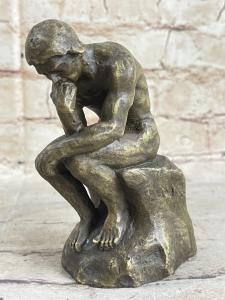How Do You Know You’re Not Brainwashed?
First, let’s define two words. What do I mean by “know?” Well, really just the usual sense of the word except I exclude absolute, total, incorrigible certainty. I don’t think that’s humanly possible. The mind can always possibly be shaken by new experiences. So by “know” I mean have “proper confidence”—knowledge beyond a reasonable doubt.
Second, what do I mean by “brainwashed?” It’s a word with a large element of subjectivity. Here, however, I mean influenced to believe something that is not true in an important way. I’m not talking about being talked into buying a product that isn’t as good as the advertiser says. I’m talking about believing important things that are not true. And I’m not talking about Santa Claus or the tooth fairy or whatever. I’m talking about religious, metaphysical, philosophical, worldviewish beliefs.
So, there, now you know what I’m talking and asking about here.
My answer is…(drumroll)…only by means of logic.
By no means do I undermine or diminish faith-experiences as means of belief-support. But, we all know that many people believe things on that basis that are illogical and therefore cannot be true. Appeals to “higher logic” or logic unique to some religious system will not do—if you want to know that you are not brainwashed.
Rene Descartes was right that every mature, thoughtful person ought to try to doubt everything; he was wrong to believe that one cannot doubt one’s own existence. It’s possible to doubt one’s own existence.
So what can’t be doubted? The laws of logic cannot be doubted without sacrificing intellect. Every belief ought at some time be doubted, even if only as a thought experiment, put to the test of logic and only believed if it passes the tests of consistency—self-consistency (among beliefs) and consistency with the material facts of reality.
I once heard a college president say “Question what you believe while continuing to believe what you are questioning.” I believe he was right. That is what we must do while also always keeping in mind that what we are continuing to believe might turn out to be false. Really, only the future will reveal some beliefs to be true or false (“eschatological verification [or falsification]”).
Am I brainwashed? Probably, about some things. I am continually bombarded with messages that cannot all be true and yet, under pressure on the mind, I find myself sometimes believing two or more things that cannot all be true. Resisting brainwashing is hard. Most people aren’t willing to do it.
I am certain, now, that I was brainwashed by my educators, to say nothing of my parents and close relatives. I had to question everything I was taught. Much of it was simply logically impossible. Some of it I had to accept on teachers’ or authors’ authority because I could not really test it. Some of it just didn’t or did have “the ring of truth.” Much of it passed the test of logic.
What I have been describing above is simply critical thinking. I am ever amazed and shocked at how few people think critically. They believe literally absurd things (logically impossible) because they want to—for whatever reason. A case study is the majority of the population of Germany in the 1930s. It should have been clear to them that the government was lying. Why did they succumb to the now recognized as absolutely absurd claims made about, for example, race? But I’m more concerned about what we contemporary Americans believe about ourselves as a nation-state and society. And about right governance and politics and current events.
And don’t get me started about religion, especially Christianity. Much of what contemporary American Christians (to say nothing of others) believe is simply nonsense. One example is that positive thinking (and speaking) can make everything alright. It doesn’t and can’t. Maybe it can make some things better, such as emotional conditions. But it can’t alter, create, physical reality. I could go on.
Every belief that really matters ought to be examined critically. The unexamined faith is not worth believing.
Theologian Karl Barth said that the greatest illusion of all is that we can disillusion ourselves. So, perhaps it is impossible to resist all brainwashing. The power of the collective social mind is incalculable. But we can try.
My pathos is that over the many years of my teaching I have not had much success in getting people to critically examine their sacred cow beliefs. It doesn’t matter whether their inclinations are “right” or “left” or “middle” or whatever. Many of them insist on believing three impossible things before breakfast. Such as that the past can be changed or that somehow, someday people will travel through time. Or that Trump is an honest, trustworthy and good leader for America.
*Note: If you choose to comment, make sure your comment is relatively brief (no more than 100 words), on topic, addressed to me, civil and respectful (not hostile or argumentative), and devoid of pictures or links.*














